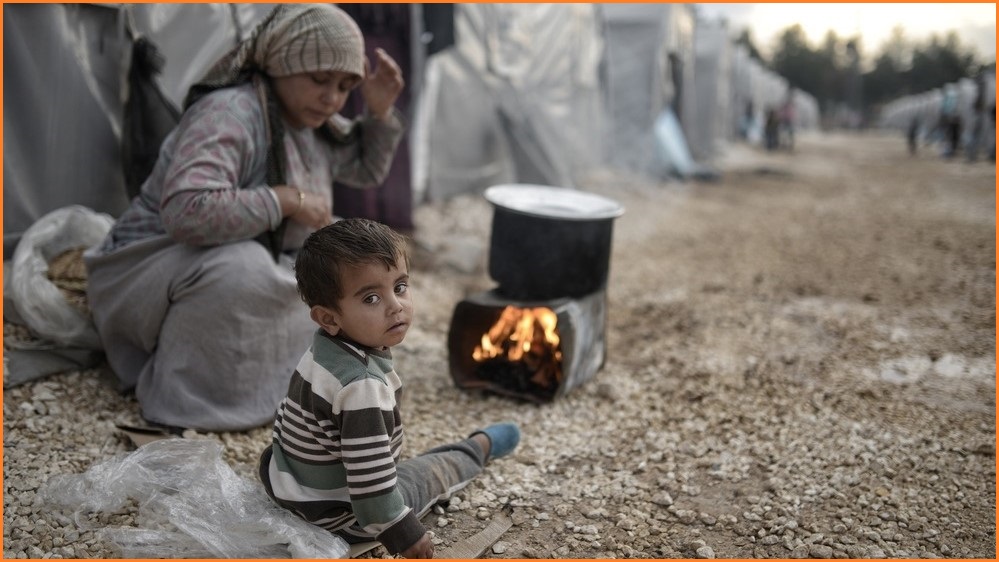TikTok is taking up to 70 percent of the proceeds from livestreams on its platform by displaced families in Syrian camps seeking donations, according to a new report.
An investigation by BBC News into the growing trend of children and families livestreaming on TikTok to ask for donations, in the form of digital gifts which can be exchanged for cash, found that these streams are in violation of TikTok’s terms of conditions and being facilitated by “middlemen” working with agencies connected to the tech giant.
These “TikTok middlemen” provide the families in the Syrian camps with a smartphone, a SIM card and access to TikTok, and are reportedly affiliated with agencies connected to TikTok in China and the Middle East.
This is part of TikTok’s global plan to encourage more livestreaming on its platform, according to the BBC.
The investigation by the BBC found that some of these livestreams are making as much as $1,600 ($US1,000) in donated digital gifts, but the actual families in the Syrian camps are only making a small amount of this.
TikTok is pocketing up to 69 percent of the profits from these streams, according to the BBC, despite them going against the company’s own rules.
TikTok denied that its commission from these digital gifts is this high but did not reveal what it actually is.
To test this, a BBC reporter in Syria contacted a so-called “TikTok middleman” saying he was living in a camp. He was given access to an account on the platform and launched a livestream, with BBC colleagues sending TikTok gifts worth a total of $106.
But at the end of the livestream, the account balance was just $33, with TikTok taking 69 percent of the value of the gifts.
Ten percent was also taken from the total from the local money transfer shop, while the middlemen took 35 percent of the remaining money, leaving the reporter with just $19 from the $106 raised from the stream.
The BBC also followed 30 TikTok accounts broadcasting from Syrian camps for five months, and found that viewers were often donating digital gifts worth up to $US1,000 an hour to each account.
But using the same calculations as the BBC reporter’s stream, this would leave the Syrian family with just $180.
These types of livestreams are also likely in breach of TikTok’s rules. The company’s terms and conditions state that a user must have 1,000 followers before they can go live, must not directly solicit for goods and must “prevent the harm, endangerment or exploitation” of minors.
The BBC reported 30 accounts featuring young children begging for donations, but TikTok claimed these accounts didn’t violate their rules.
After they were contacted by the BBC, TikTok banned all 30 of the accounts.
“We are deeply concerned by the information and allegations brought to us by the BBC, and have taken prompt and rigorous action,” a TikTok spokesperson said in a statement.
“This type of content is not allowed on our platform, and we are further strengthening our global policies around exploitative begging.”
The report also featured an interview with one of these TikTok middlemen, who said he sold his livestock to pay for a phone, SIM card and Wi-Fi connection, and that he works with 12 families who broadcast for several hours a day from a Syrian camp.
This person claimed he was backed by livestreaming agencies, known as “livestreaming guilds” in China who work directly with TikTok.
These guilds are reportedly contracted by TikTok to aid users in producing livestreams, with TikTok paying them a commission based on the duration of their streams and the number of digital gifts received, the BBC reported.
TikTok allows users to send digital gifts to other users on a livestream. To do this, they first have to purchase TikTok coins. Once received, a gift can be converted into a diamond on a user’s profile, which can then be exchanged for cash.
Users can collect the money through PayPal or another payment service, with a minimum withdrawal of $100 and a maximum of $1,000 per week.










